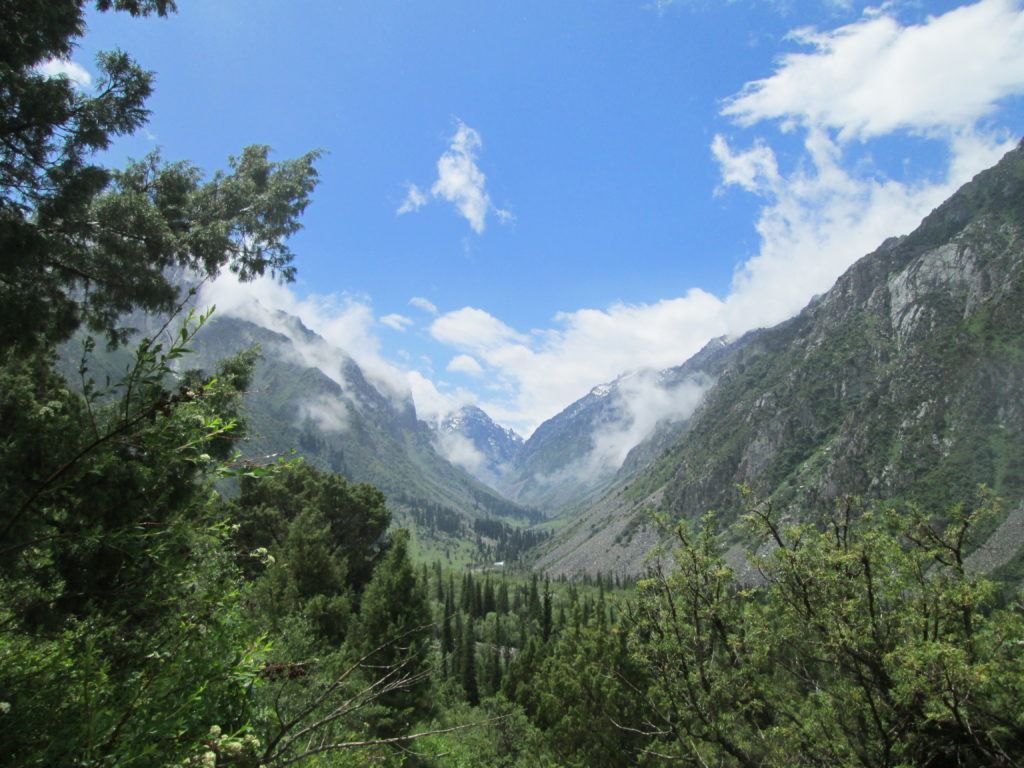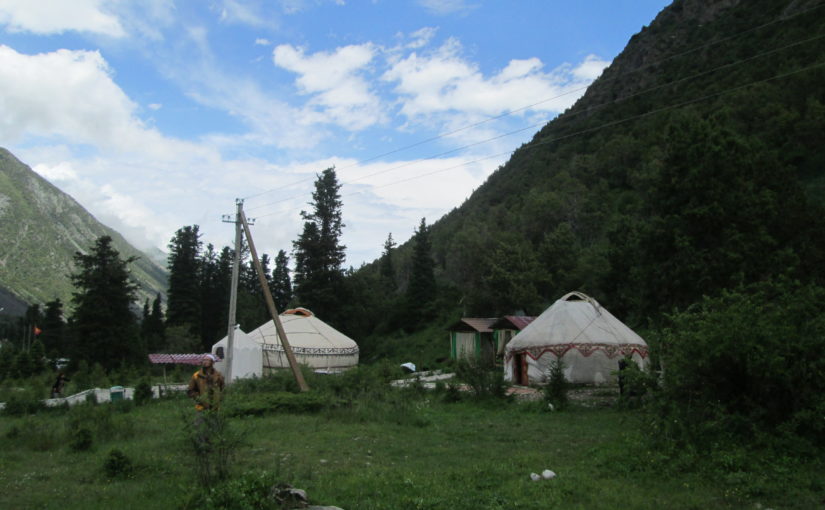After living in Kyrgyzstan for two weeks, I can’t yet say that I am an expert on Kyrgyz culture, but I can say a thing or two about their guest culture. The Kyrgyz, unlike their cold, antisocial Russian neighbors to the north, are more than happy to receive guests. In fact, receiving a guest is considered and honor. I learned this firsthand when I met my host family and through their everyday interactions with me. However, being treated nicely by your host family doesn’t say much — they’re supposed to feed you well and take care of you, right? But just today I experienced some real Kyrgyz hospitality: tea, food, conversation, and comfort from complete strangers.
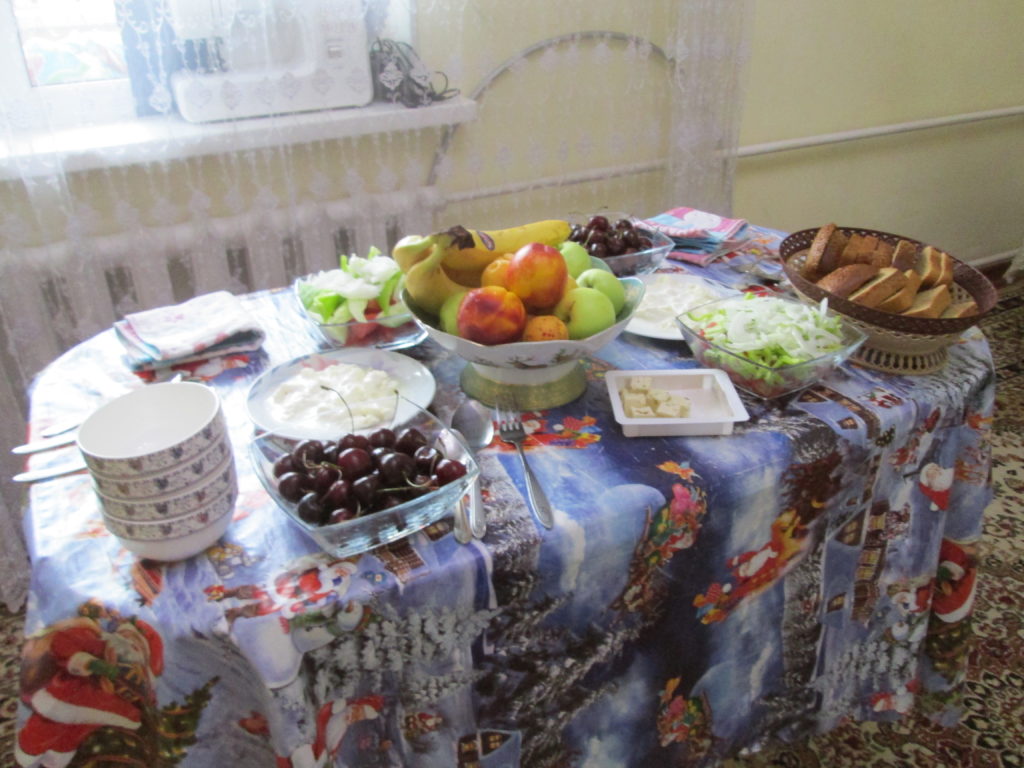
Immediately after arriving at my homestay, my Kyrgyz host mom had me sit at the table and gave me a warm bowl of food. After insisting that I have a second serving and refilling my tea cup at least three times, she finally let me go to sleep. The first new Russian phrases that I learned while in Kyrgyzstan are: “кушаешь” (“kushayesh,” although they spoke so quickly that it sounds like “kushesh”) and “будешь чай” (“budesh chai”), which mean “eat” and “have tea”, respectively. These were the words with which my host family smothered me in hospitality, delicious Kyrgyz cuisine, bread, and relaxing tea. If I even walked into the room where they were eating or having a snack, they would immediately ask me, ” Kушаешь?” and offer me some bread or fruit before I could respond in either the affirmative or negative. Often, even if I said “Нет, спасибо” (“Nyet, spasibo” – “No, thank you”) they were undeterred: a minute or two later I would again hear: “Чай будешь?” And it wasn’t just my host mother who treated me so hospitably: even my two host sisters, who are 17 and 13 years old, treated me like an honored guest. One second the 13-year-old would be making fun of her little brother or playing on her phone, and the next she would bring me some freshly washed apples and apricots, without my asking for them. The older sister, who doesn’t talk much, comes across as rather motherly when she asks me whether I’ve eaten yet and insists on serving me tea.
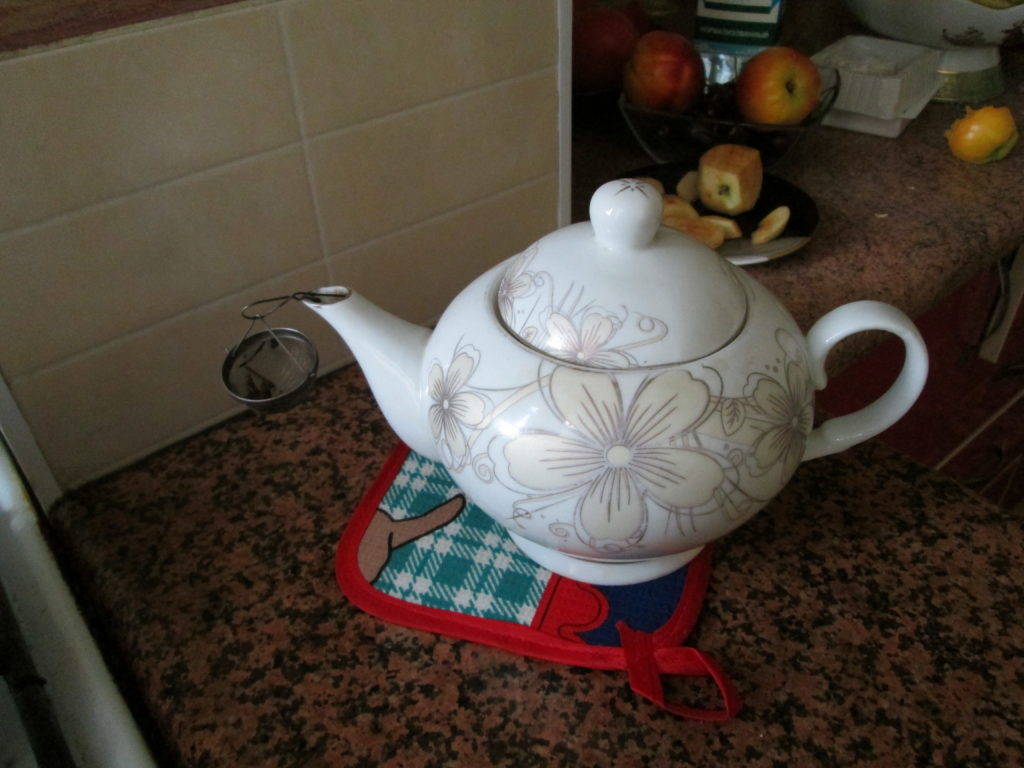
On the day of my arrival, they also cooked me a special meal of besh barmok, the national dish of Kyrgyzstan, which is always served to honored guests to celebrate them. Besh barmok, which means “five fingers” in Kyrgyz, is a dish consisting of stewed horse meat and freshly made wide, flat pasta and is garnished with onions and dill. The name of the dish refers to the method of eating the dish: with one’s hands, although my host family graciously let me partake of it with a spook and fork. I watched my host aunt make the pasta. First she rolled out a lump of dough into a large, flat circle about two feet in diameter and only a few millimeters thick. Then she folded it up and cut it into long, wide strips about two inches by eight inches. The pasta was cooked in the broth from the horse meat, which was very fatty. The dish was delicious, though somewhat salty. The horse meat tasted so much like beef that it wasn’t until they told me later that I learned that it was horse meat. They served it on a large platter with the meat placed in the middle, on top of a bed of pasta. They also placed a bowl of bread, and bowls stacked high with carefully arranged fruits on the table before me. I’ve learned that, in Kyrgyz cuisine, the presentation is just as intrinsic to the dish as it’s ingredients and method of preparation. My host sister’s aunt served me the besh barmok, pushing more and more food onto my plate until I thought that I would explode if I ate anymore. And then came fruit and cake…. Thankfully, they let me save the cake in the refrigerator until the next day. This cake, they informed me, was also a traditional Kyrgyz cake, called ‘kapriz.’ Kapriz is a moist, multilayered cake consisting of layers containing walnuts, raisins, and poppy seeds and is covered in creamy frosting.
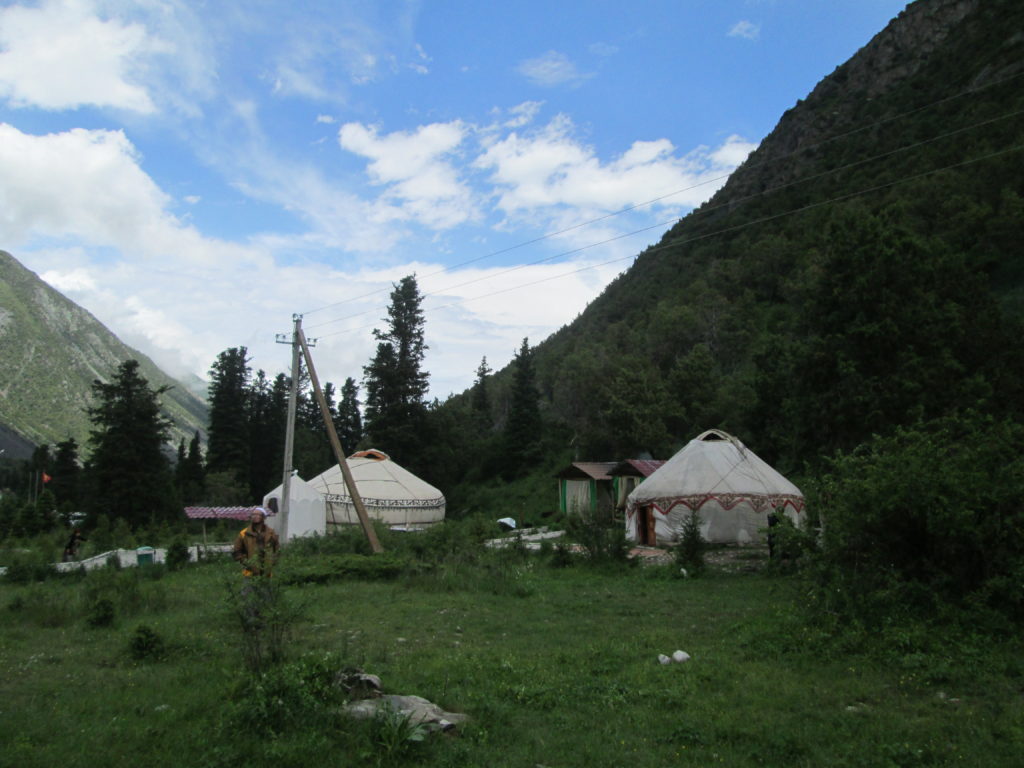
But, of course, it wouldn’t mean much just to say that my host family treated me well. I am their honored guest, and, on top of that, they are being paid to feed and house me. My real experience with Kyrgyz hospitality was when complete strangers invited me to eat and drink with them. Through the program that I am in, we took a day trip to Ala Archa Gorge, a beautiful national park about an hour south of the capital city of Bishkek, where I am living. By the entrance to the various trails up the mountains, there stood two yurts, traditional Kyrgyz nomadic dwellings. Two of my friends and I were standing outside the yurts, admiring them, when a woman noticed us and invited us in. Eager to see the inside of a yurt as well as the outside, we accepted. Upon entering, we removed our shoes so as not to track mud on the beautiful carpets in the yurt. We were expecting to just walk around and then leave, but the people inside insisted on our sitting at their table. The table, which was only about a foot off the ground, was surrounded by cushions on which we sat ourselves down. My friend, who was not properly dressed for the unexpectedly cold weather, was given a blanket and all of us were given tea, even when we declined. A Kyrgyz man there that spoke Russian conversed with us as if we were his close friends. He asked us where we were from and told us about himself, his family, and why they were picnicking in the yurt at Ala Archa gorge. Just like my host family, they invited us to eat and drink as much as we wanted, even pushing the dishes closer to us to encourage us to eat. However, we ate only a little, not wanting to take advantage of their hospitality. And even when we tried to refuse the food, they insisted that we at least drink more tea, “Because it’s so cold outside!”
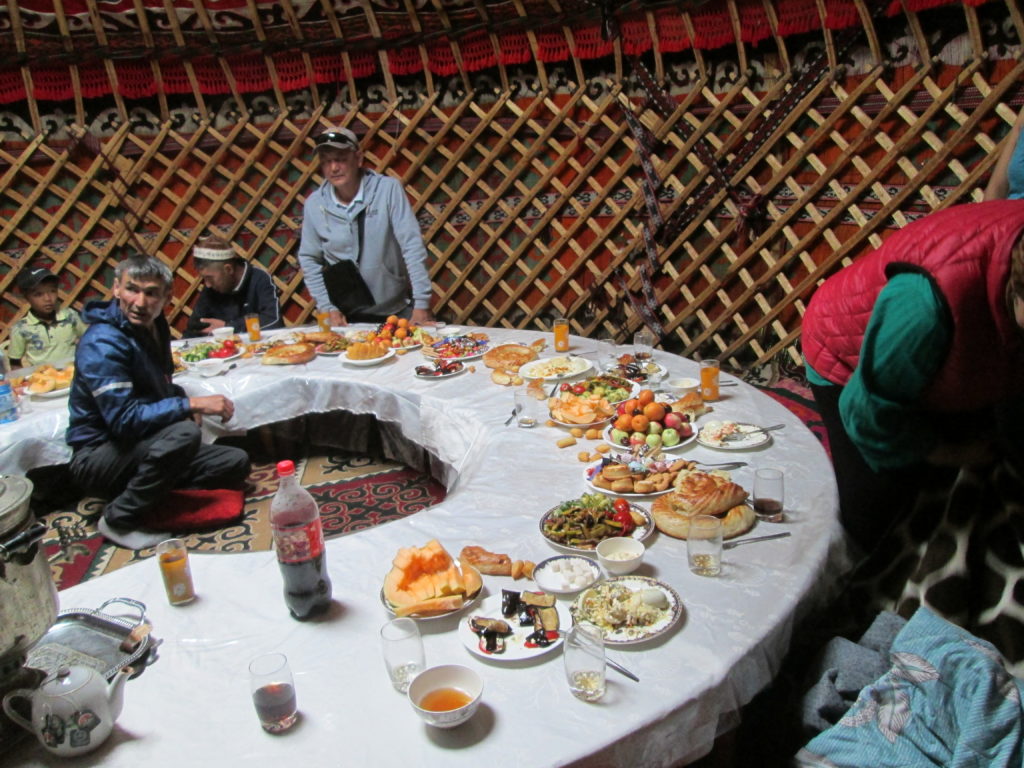
I had read about Kyrgyz hospitality and guest culture before coming to Kyrgyzstan, but was still surprised by it when I arrived. I expected my host family to treat me well, but was almost overwhelmed by their insistence that I eat and have tea almost continually. And I certainly did not expect random Kyrgyz people on an expensive vacation at one of the most popular vacation sites in Kyrgyzstan to notice us, invite us in, feed us, and tell us about their family.
I asked my host sister, who is 17, about Kyrgyz hospitality, and, although I am not quite sure that she understood my questions, thanks to my accent and limited vocabulary, she was able to give me some information. She told me that the Kyrgyz are hospitable to both people that they know and to complete strangers. It is common for a Kyrgyz family to invite over their neighbors for food and tea. She also informed me that people were more hospitable and kind in the past then they are now, and more hospitable in the countryside than in the city.
The Kyrgyz people, being Central Asian and more closely related to Turkic and Mongolian people, have a very different culture than the Russian people. Although I am studying the Russian language, I am more than thrilled to be living in Kyrgyzstan and learning about Kyrgyz culture and customs.
